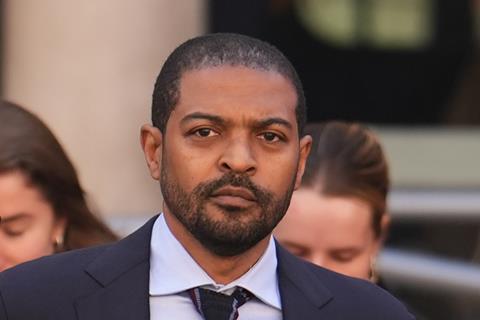Katharine Viner, editor-in-chief at The Guardian, has said there was “very clear public interest” in reporting allegations of misconduct against
Katharine Viner, editor-in-chief at The Guardian, has said there was “very clear public interest” in reporting allegations of misconduct against Noel Clarke after his honorary Bafta win in 2021, as she gave evidence at London’s High Court today (April 4).
Viner said she is responsible for everything the newspaper publishes, and in that capacity took the decision to publish the Clarke investigation.
Clarke is suing the newspaper’s publisher, Guardian News and Media (GNM), over seven articles and a podcast, including an article from April 2021 that said 20 women who knew Clarke professionally had come forward with allegations of misconduct.
Clarke denies the allegations and has said several people who have made claims are part of a conspiracy to defame him.
The publisher is defending its reporting as being both true and in the public interest.
Viner said that Paul Lewis, the Guardian’s head of investigations, told her in a meeting on April 12, 2021, that Bafta had been informed of the allegations about Clarke and proceeded to award him the outstanding British contribution to cinema award.
(A letter to Bafta members from its chair and CEO on April 30, 2021, said: ”In the days following the announcement, BAFTA received anonymous emails of allegations in relation to Noel Clarke. These were either anonymous or second or thirdhand accounts via intermediaries. No firsthand allegations were sent to us. No names, times, dates, productions or other details were ever provided. Had the victims gone on record as they have with The Guardian, the award would have been suspended immediately. Noel Clarke’s counsel received a legal notice to this effect. It was always very clear what our intentions would be.”)
Viner continued: “It was apparent to me by that stage, and I think when I spoke to Paul in the prior few days, that Mr Clarke’s conduct was something of an open secret in the UK film and TV industry.
“It was clearly the case that individuals had been galvanised to speak to one another to some degree before we began to investigate.”
Viner told the court that she was aware that Clarke strongly denied the allegations, adding that she considered it appropriate to give him a “reasonable but not lengthy period of time in which to comment”.
She continued in written submissions: “I considered there was a very clear public interest in exposing allegations of misconduct in the context that the individual in question had recently celebrated and further empowered through the special award that had been made by Bafta.
“In the featherlight of the long period over which allegations had been made, it was conceivable that this endorsement of Mr Clarke and consolidation of his influence in the British film and television industry could enable him to continue or escalate the relevant behaviour, potentially with impunity.
“However, even if the timing of the award had not influenced the timing of publication, I consider we would likely have published the story in any case and perhaps only slightly later.”
Viner also said that Clarke’s position was presented clearly and high up in the article, and further detailed throughout.
She added that she thought the “readers were well placed to assess the credibility and significance of the findings” of the investigation.
Philip Williams, representing Clarke, asked Viner if it was correct that she did not have “very much” to do with the investigation.
She replied: “I would say that I expect the reporters to do the reporting, the editors to do the editing, and then for them to escalate it to me. That is what happened in this case.”
She added that it was her “job to take a really big step back, take any emotion out of it” and make a decision on whether the story was in the public interest.
Clarke’s lawyers say the conspiracy they allege “undermines” the public interest defence.
In written submissions, Williams said: “At its lowest, the defendant and its journalists were clearly aware of the conspiracy and therefore fell into its common design, and at its highest, they actively conspired with the conspirators and their associates to publish the seriously defamatory articles against the claimant.”
The hearing before Mrs Justice Steyn is due to conclude this month with a decision in writing given at a later date.

COMMENTS